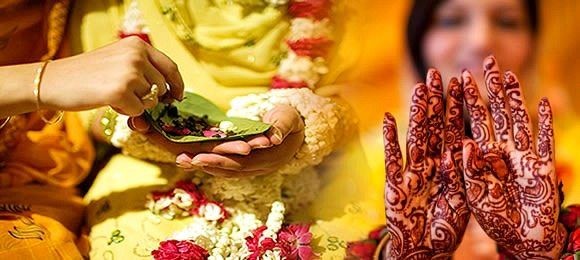
Mehndis are usually most anticipated, because they are supposed to be the most fun-filled events of the entire wedding. (Photo: desiblitz.com)
|
Bao Tram: Hello, Najam, welcome to “Cultural Rendezvous”. I know Pakistan is a land of remarkable customs. What will you tell our audience about Pakistan’s wedding?
Najam Hassan: I want to introduce the Pakistani unique wedding culture to the Vietnamese because I think that there are many interesting things to tell about the wedding ceremonies in my country. And most of the Vietnamese would be amazed to hear about various rituals being performed during the wedding.
Bao Tram: What are the highlights of a Pakistani wedding?
Najam Hassan: Well in our society, the wedding is not an easy task, it is a lengthy process for example, first of all, the parents start searching for a girl for their boy, once the girl is selected, an engagement ceremony is held that means the relationship is now final, then after a few months or years, the wedding date is fixed after mutual consultation and then wedding ceremonies start.
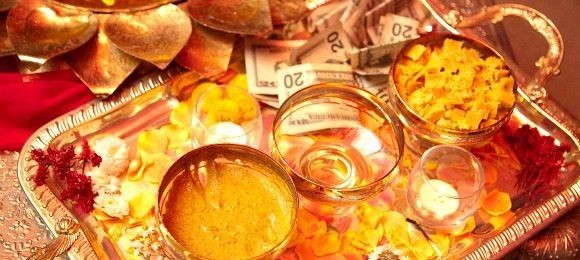 The Mayoon takes place before the wedding day. (Photo: desiblitz.com) The Mayoon takes place before the wedding day. (Photo: desiblitz.com)
|
Bao Tram: So a wedding in Pakistan is a serious deal, with preparations starting long before. Tell us more about the protocols!
Najam Hassan: Traditionally, the marriage ceremonies are not done on a single day but they remain for three to four days and sometimes for the whole week. Before the wedding, the girl's parents prepare for dowry to be gifted to their daughter. Dowry consists of each and every thing that is used in daily life from kitchen items to bedroom furniture and electronics etc.
There are more than one functions such as the first function that is held about three days before the marriage and called "Mayoon". It is hosted by the bride's side. This function makes the bride bound to stay at home even within her bedroom till the marriage day. Then in a day before marriage the groom hosts a function that is called Mehndi, in which the bride's relatives get together with the bride's relatives and the party becomes very entertaining as the participants sing songs and dance together. Then marriage day comes when the groom takes a big procession called "Barat" normally consisting of over two to over five hundred people and this Barat goes to the Bride's home or the marriage marquee arranged by the bride's parents. A grand reception is arranged for the participants and after necessary religious and cultural rituals, the Barat returns to the groom's home along with the bride. Then the next day, the groom hosts a grand lunch or dinner called Walima and then the marriage ceremony ends.
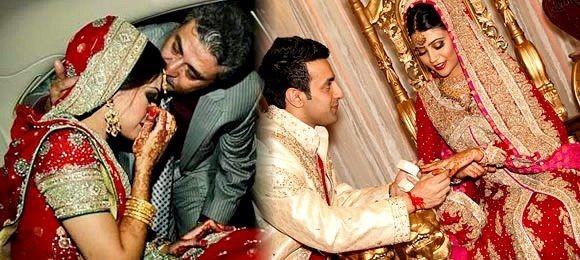 The Baraat involves the ‘departing ceremony’ for the bride following the arrival of the groom in a procession to take her away. (Photo: desiblitz.com) The Baraat involves the ‘departing ceremony’ for the bride following the arrival of the groom in a procession to take her away. (Photo: desiblitz.com) |
Bao Tram: Are weddings done the same way today?
Najam Hassan: No, with the passage of time things are changing now and specially in urban areas, the traditions are not being followed strictly. What our elders tell us about the marriage ceremonies in their time seems to be somewhat different now.
The marriages are becoming more complicated and costlier now which is sought as a negative thing by many. A middle class family if bride or groom has to spend at least three to four million rupees that is equivalant to over 20,000 US dollars. A snall portion of our society is also advocating for a simple and easy marriages.
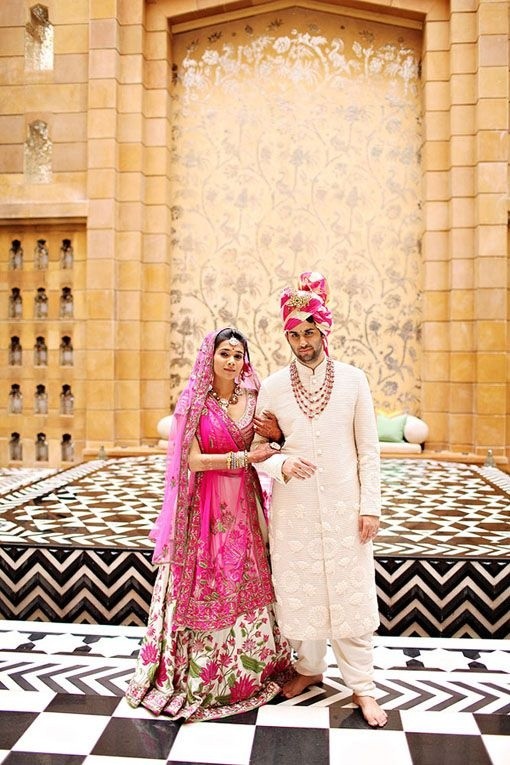 Pakistani traditional wedding clothes (Photo: yourfirstwedding.com) Pakistani traditional wedding clothes (Photo: yourfirstwedding.com)
|
Bao Tram: Are there any differences between urban areas and rural areas?
Najam Hassan: Mostly the ceremonies and rituals in both urban and rural areas are similar but the difference is that there is much glamor involved in the urban areas. Rural people are still adhered to the old rituals.
Bao Tram: Are there any special customs the bride and groom must follow?
Najam Hassan: Yes, traditionally the bride is asked to remain silent during Nikah, the central marriage ceremony. Then there are certain rituals like when the bride is set to depart from her parents home she throws a handful of rice behind her to ensure that her new life would be happy.
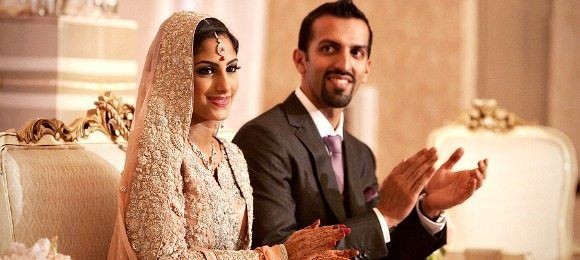
The last main event is the Walima. (Photo: desiblitz.com)
|
Bao Tram: I found some photos which show that the wedding clothes of the bride and groom look colorful. Could you describe them for us?
Najam Hassan: In Mayoon, the bride along with all the ladies wear yellow colour dresses. On wedding day, the bride wears a heavily embroidered red dress called Lehnga, while the groom also wears the embroidered overcoat that is called Shairwani.
Bao Tram: A wedding is a turning point in a person’s life. Regardless of how society changes over time, weddings remain a cherished rite of passage. How do think about it, Najam?
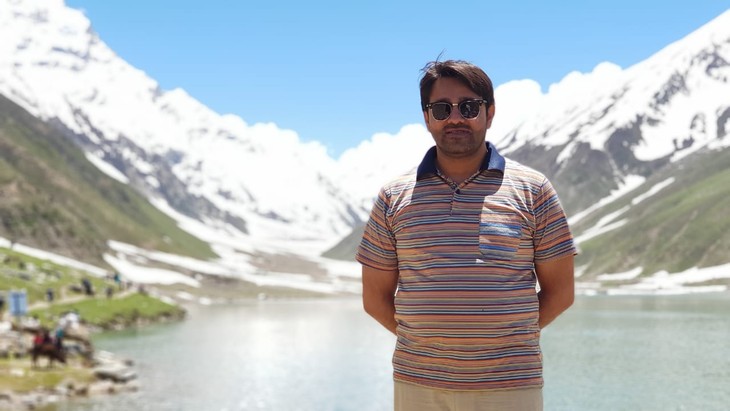 Najam Ul Hassan, reporter of the Associated Press of Pakistan Najam Ul Hassan, reporter of the Associated Press of Pakistan |
Najam Hassam: Yes it's true of course and marriage has always been a harbinger of a new life for both boy and girl. And with respect to the traditions and ceremonies, we love to preserve them as these are our identity.
Bao Tram: Thank you, Najam, for joining us today and telling us about wedding ceremonies in Pakistan. I hope to see you in future programs. For “Cultural Rendezvous”, I’m Bao Tram saying good-bye.